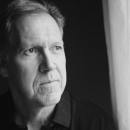Chart-topping rockers and modern-day abolitionists Remedy Drive return January 12 with The North Star. Drawing from a range of sonic influences-from '80s electronic, to '90s grunge, to modern hip-hop-the 12-song set was produced by Philip Zach and sheds light on the plight of sex trafficking victims, while extolling the sacrifices of freedom fighters around the world.
Showcasing the call-to-action album opener "You Got Fire," featuring Dove Award-winning recording artist Rachael Lampa, the project also includes the debut single and title inspiration, "Polaris"; "Sunlight On Her Face," a heart-wrenching glimpse into slavery; the pulsing, electronic "Brighter Than Apathy"; and "Sanctuary," with a rap from hip-hop and spoken-word recording artist Propaganda.
Remedy Drive founder and frontman David Zach has been working undercover with The Exodus Road for five years. To date, he has completed nine deployments to Southeast Asia and Latin America with the anti-trafficking organization. With portions of The North Star recorded mere steps from red light districts throughout Southeast Asia, the project chronicles Zach's experiences more powerfully and candidly than ever before. "During the day we'd write and record and at night we'd do investigations and casework," he explains. "We wanted to capture the narrative of the oppression and to be able to get that story into the melodies themselves.
Q: David, thanks for doing this interview with us. You are working undercover with the Exodus Road. What's the ministry of Exodus Road about?
The Exodus Road is a non-government organization that specializes in finding and freeing enslaved people, with a focus on underage girls and boys in the sex trade. We use covert gear and technology to find evidence of sex trafficking and then use that evidence to partner with local authorities to carry out raids and sting operations that will result in freedom for those being trafficked, as well as the arrests of those trafficking these precious girls and boys.
Q: How did you first became interested in this ministry?
I met Matt Parker, co-founder of The Exodus Road, in 2013. I had been writing songs about boy soldiers who were kidnapped and forced into conflicts in Uganda. I had also been writing about the modern Underground Railroad and the heroines and heroes of ages past. We had recently become and independent band and I really believed we were supposed to use our platform and our songs to expose the darkness and move people towards empathy.
Matt came to Nashville with the hopes of meeting musicians who were interested in helping him get the word out about the abolition work of The Exodus Road. I met with him in the evening after every other meeting he had set up with musicians and their representatives had cancelled. I didn't know it when I sat down with him, but that meeting was about to change my life. I realized what a fraud I would be to merely sing about injustice if it's not something I'm involved in fighting. I went into the meeting with a quote from Dr. Martin Luther King ringing in my ears, "Now is a time for us to develop a kind of dangerous unselfishness." I told Matt in that meeting that I wanted to join him in frontline work. He said I needed to ask my wife. She said no. He came over for breakfast the next morning and through tears my wife said, "David will join you. This will be our legacy." Three months later I did my first undercover work in Southeast Asia.
Q: What is your involvement in anti-trafficking? And what countries have you been working with?
Most of my trips have been to Southeast Asia. I went to Latin America for the first time last summer to be part of a training mission for our team on the ground there. When I'm overseas my role is to find actionable evidence of sex trafficking. We use amazing technology to capture evidence that will convince authorities to partner with us on raids against these cartels and gangs that are selling underage girls. They are using force, fraud and coercion to control and manipulate poor, uneducated girls from the countryside into the sex trade. It's horrifying to be around. It is quite disruptive emotionally for me to be in a room where there are dozens of teenage girls being sold for sex to men who fly from all over the world to take advantage of them. There are 15-year-old girls forced to accompany men three times their age and three times their weight. We're there to expose this evil.
When I'm at home we tell the story at concerts and in interviews, with the goal of helping fund more technology and investigations. The Remedy Drive community has helped raise money for the work of local investigators in Southeast Asia, India and Latin America.
Q: The theme of anti-human trafficking is reflected on your new album most blatantly in the song "Brighter than Apathy." Why are people apathetic towards this issue?
The enemy snuck in and sowed seeds of apathy beside the shafts of wheat. The resulting fruit is obvious and observable.
Everything about the teachings of Jesus instructs us to get involved in arenas of justice, compassion and mercy. The poor, exiled, oppressed and marginalized are mentioned over 2100 times in scripture. Jesus' first public speech on record begins with this reading from an ancient prophet named Isaiah (the 61st chapter): "The Spirit of the Almighty is upon me and I have been anointed to proclaim good news to poor people. He has sent me to bind up the brokenhearted, to proclaim freedom to the captives, release from darkness to the prisoners and a restoration of dignity to the oppressed and the downtrodden."
Jesus' Gospel was good news to the afflicted. Is that the Gospel we're teaching from our pulpits and in our songs? Or is it a polished, sanitized, apathetic, anemic, watered down version that has no real tangible and physical value to the most vulnerable in our neighborhoods, in our cities, in our countries and on our planet?
I think this endemic of apathy in our subculture can be traced back to some faulty teaching from our authority figures. There is a massive hole in the way the Gospel is being represented. As the rapper Propaganda put it on our song Sanctuary, "there are breaches in your preaching - we can see it from the bleachers."
People want to help those in need; it's woven into the very fabric of our DNA. But anytime someone like me mentions the very clear instruction from Scripture to get involved in advocacy and frontline work, we are met with static from the establishment. They say stuff like, "You know, all that social justice stuff is nice but we just really need Jesus." I agree. We need Jesus. And for reasons that I don't quite understand, He's decided that at this time in history He's going to show up through human beings who follow His example of laying their lives down for their friends-and in our case, for the daughters of total strangers. There is no greater love than a life laid down. That's why He said to go into the whole world and teach new followers to observe all the things He instructed us to do. Maybe he's waiting for the leaders to put both their feet in the water before he parts the River Jordan. But that would be costly. It would take a drastic restructuring of priorities and use of resources.
"Christian" means a lot of different things to a lot of different people, but originally the idea was "little Christ." The skin and bones of the eternal Creator can be observed today on the frontlines of the counter-trafficking effort, digging wells in Africa, resettling refugees, providing food, advocating for medicine and healthcare for those who can't afford it, fostering children, adopting children, speaking up against white supremacy, speaking up for racial reconciliation and exposing systemic injustice and inequality. It is so beautiful to see the King in action-He is both the starving child and the girl that skipped a year of college to donate her life and youth to feeding that child. He is both the 6-year-old girl in a brothel and the undercover operative risking his life to rescue her. He is both a Syrian child coming off a raft in the Aegean Sea and the aid worker wrapping her in a blanket after her harrowing journey. I'm very inspired by the work that is being done by the hands and feet of the Savior. It's really something to behold. A city on a hill. A candle in the darkness.
But it's this other thing that I don't quite know what to do with. What we call "worship" is all talk and no action-hollow melodies rarely backed by action. It's what church people spend probably 98% of our resources on. We have priorities, and unfortunately a 13-year-old that is being raped several times a day is not one of our priorities. There are buildings to build with overpriced and underused sound and lighting. Buildings that lay vacant six days a week. State of the art screens to project lyrics that say, "let justice and praise become my embrace." Well let's embrace justice. I'd love to see that. I real really want to see that. It was potentially dangerous to help that man that was lying in the ditch in Jesus' parable. And a couple of religious people walked by. They had their worship service to get to. They had their robes to keep clean. They had priorities. But the third guy...man, I really want to be like that guy.
The second reason I think we're apathetic is related, but it's a much easier fix. I think most of us have a belief-and I try to turn from this belief daily-that our contribution is insignificant. It's just five loaves and two fish you might say. It's just one talent, maybe I should bury it in the ground. It's just two pennies. It's just one relatively obscure rock band. I'm just a songwriter from Nebraska. I'm just a student from Michigan, you might say. I'm just a domestic engineer from Colorado. And yet the Kingdom is among us. The work of the Kingdom is being accomplished through the seemingly insignificant actions of a rising tide of ordinary people who are not content looking the other way. We are not content to hide behind a theology that breeds apathy. We rise up in the face of seemingly insurmountable odds to keep the darkness at bay. We stand on the edge of the abyss knowing that the skies are alive with chariots on fire.
That's so inspiring, isn't it? That's the kind of thing that turns a cynic into a believer. Look at the power of that Gospel. The transformative power of a life laid down. The corruption that facilitates sex trafficking will rust and turn to powder someday. But the selflessness of those who engage in righteous actions will outlive the very stars. There is an enduring quality to the good works that were prepared for me since before the foundations of the planet were fastened. These actions are eternal. And if we can convince others to join us in laying our lives down, we will shine like the very stars we're going to outlive. That's what the prophet Daniel promises. I want to move you with these songs. I want to move you towards righteous actions.
Q: Why did you entitle the new album "The North Star"?
Polaris, another name for The North Star, is a star in the night sky that is used to navigate. Slaves in America used coded lyrics in their melodies to help them find The North Star. They would operate the Underground Railroad using the star for guidance to head north towards freedom. Frederick Douglass, an abolitionist hero of mine, had a newspaper for the abolition called "The North Star." I wanted these songs to join the countless melodies in the history of the abolition. I imagine a freedom fighter like Harriette Tubman humming those tunes during dangerous nights. I imagine a runaway prince under ancient stars, with the memory of a melody his slave mother would sing to him as a child so many years earlier. He went on to lead a million slaves to their freedom. Maybe the fires on Polaris burned above the desert the night Moses saw the fire on the hillside. I think it's the same fire that burns in the hearts of all of us who have joined the abolition.
Q: Why did you decide to a cover of Bob Marley's "Redemption Song"?
Similar to some of the slave songs during the era of the transatlantic slave trade, this song has always moved me. Rock music has always been a voice of defiance against systems of control and injustice. There are melodies that carry a weight to them- a lament, a hope, an urgency. This song is one of those melodies.
We left record deals to record these songs. They said "no one wants to hear about boy soldiers in Africa and slaves in Southeast Asia. They just want something safe and positive in their minivans on the way to drop the kids off at school." I didn't believe them. And it turns out there are people who want to be challenged by the music they listen to. But we needed the help of the Remedy Drive nation to record these songs. We reached out to our community to help fund this album with the words of Bob Marley-"won't you help me sing these songs of freedom"-and they responded with overwhelming generosity.
Q: One of your new songs "Sunlight on Her Face" deals with women being oppressed. Tell us more about the oppression some of these women that you are ministering to are suffering.
What I see on a typical night in the red light district, on the street, in back alleys and in the brothel is unimaginable. It's not something that's easy to talk about. Children being sold at a premium for their virginity. The scale of the operation will take your breath away. By some collision of circumstances this girl finds herself being sold for sex by someone who claims ownership of her.
I was on a rooftop in Southeast Asia with my friend Sudir, who has been responsible for the freedom of hundreds of girls and women in India. Sudir told me that he's often times in brothels that are locked. When he enters they lock a series of doors behind him. He said to me, "some of these girls haven't seen the sunlight for days." That's where this song came from. I want to tell her story with dignity and honesty. Her misery is beyond comprehension.
Jesus Christ was a man of sorrows who was acquainted with grief. There is not a grief, in my estimation, that exceeds this grief that we are putting ourselves in close proximity with.
Q: What can our readers do with regards to this issue of human trafficking?
No one else has your voice. No one else has your sphere of influence. No one else has your imagination or your creativity. This is the currency we each bring to the table uniquely. I have my own unique contribution in the arena of freedom, justice, compassion and mercy. Funding frontline work is a big need when it comes to counter-trafficking efforts. What's really great about fundraising events is that we're able to raise awareness and funds at the same time. I've met a girl that raised hundreds of dollars for The Exodus Road by running a 5K in high heels. We've recruited several operatives to join the undercover teams at The Exodus Road. I met a 6-year-old girl at a concert who told me, "my family hunts wolves and rescues princesses." I teared up immediately. The great joy of my life has been to watch ordinary people step into extraordinary roles in the fight for freedom. I don't know what your contribution might be-whatever it is-don't let anyone tell you it's insignificant. You have but one life to live. What will you spend it on? Text "remedy" to 51555 and you will get updates from The Exodus Road every time a rescue is made. It's a great moment in my day when that happens.


















